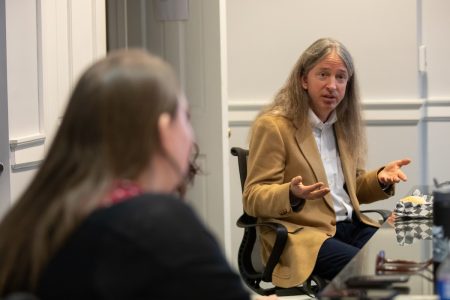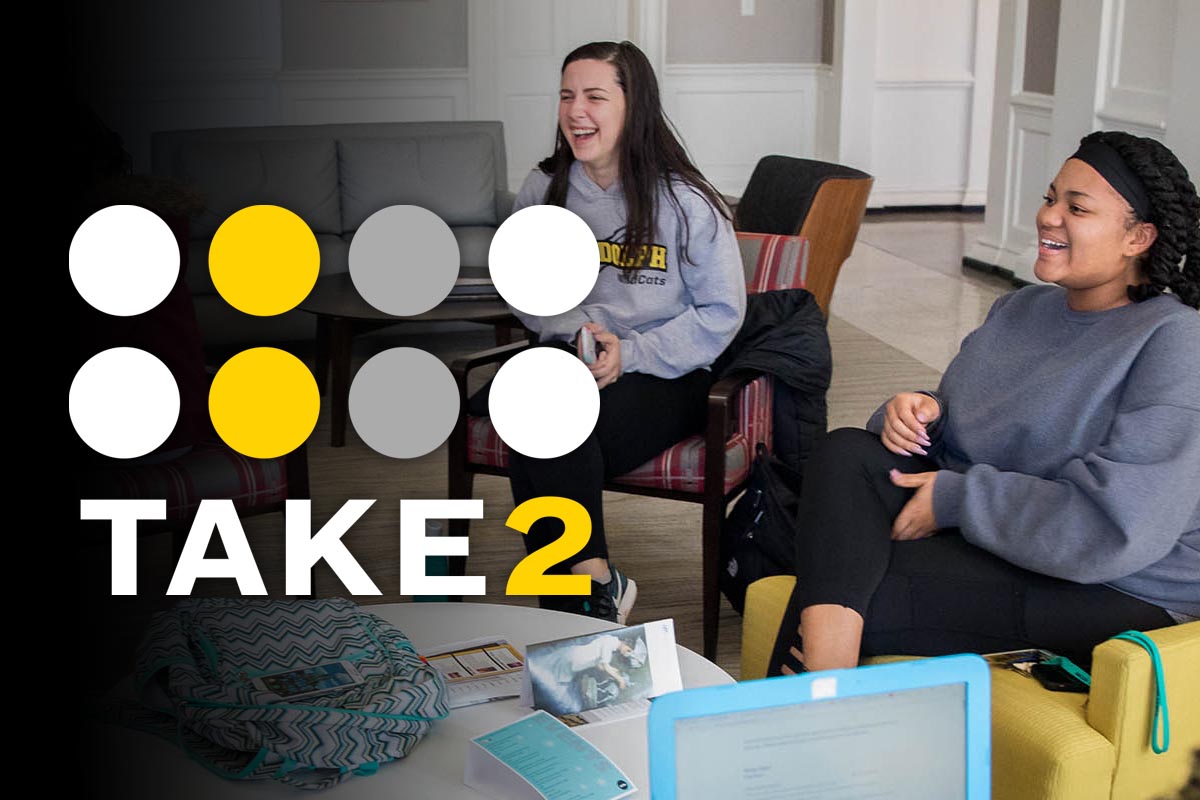Epochs of Nature exhibit will explore environmental and cultural change from 17th-21st centuries

Noah Heringman, who teaches Romanticism, aesthetic theory, and history of science at the University of Missouri, speaks with Randolph students, faculty, and staff at a special luncheon
Historical art, artifacts, and specimens from Randolph’s Natural History Collections will tell the story of evolution and climate change over the last 400 years in a special exhibition called Epochs of Nature: [R]evolutions in Climate, Geology, Species, and Culture.
The exhibition opens November 5 in the Student Center atrium, and will be on display through the end of the fall semester. A special reception is scheduled Tuesday, November 13, at 4 p.m. in the atrium. Following the reception, at 5:30 p.m., Noah Heringman will give the lecture “Deep Time: A History.” The event will take place in Nichols Theatre, inside the Randolph Student Center.
Heringman is a professor at the University of Missouri, where he teaches Romanticism, aesthetic theory, and history of science. In his lecture, he will explore why discoveries in natural history, archaeology, and earth science altered the ways people of the Romantic period thought about cultural and natural time scales, prompting theories of evolution, extinction—even the impacts of human activity on global species diversity and climate change.
All events associated with the exhibit are free and open to the public.
Tags: Epochs of Nature, events, exhibits, natural history collection, Randolph College Natural History and Archaeology Collections
